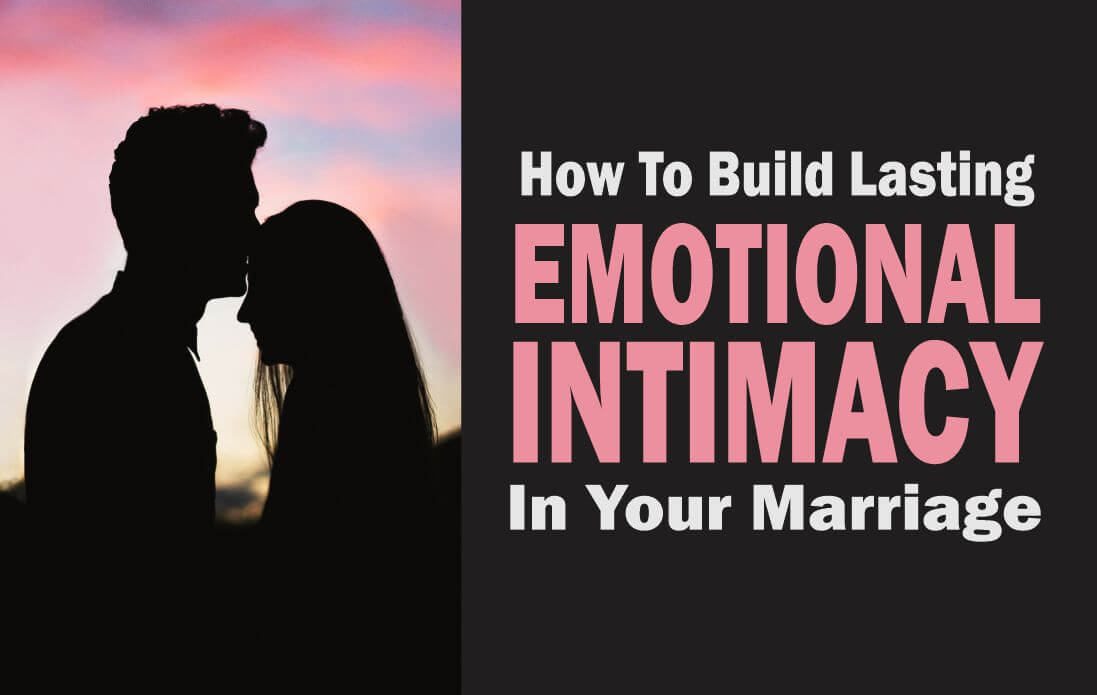Introduction: Dating With a Purpose
Modern dating often feels like a rollercoaster—thrilling in the beginning but uncertain in direction. Many people enter relationships without a clear goal, hoping that things might naturally evolve into something serious. Others get caught in “situationships,” where months or even years are spent with someone who never intended to commit long term.
For those who desire marriage, this uncertainty can be draining. Dating to marry is different. It is intentional, focused, and purpose-driven. It is about building a relationship not only on chemistry but also on compatibility, shared values, and a clear vision of the future. This approach doesn’t eliminate fun or romance—it simply aligns dating with long-term goals, reducing confusion and increasing clarity.
According to Psychology Today, intentional relationships foster greater trust and satisfaction because both partners know what they want. Instead of leaving things to chance, you move with purpose, making your journey toward love and marriage much smoother.
Casual Dating vs. Dating to Marry
There is a major difference between casual dating and dating to marry. Casual dating emphasizes the present—enjoying companionship, sharing experiences, and keeping things light. While it can be fulfilling in the short term, it often lacks the foundation needed for long-term commitment.
Dating to marry, on the other hand, is intentional from the start. The goal is clear: building a strong partnership that leads to marriage. This doesn’t mean rushing into commitment; rather, it means ensuring that every step you take in the relationship aligns with your vision of the future.
| Aspect | Casual Dating | Dating to Marry |
|---|---|---|
| Primary Goal | Fun, companionship, exploration | Lifelong partnership, marriage |
| Commitment | Flexible, minimal | Consistent, intentional |
| Focus | Chemistry and attraction | Shared values and goals |
| Conflict | Often avoided or minimized | Addressed with honesty |
| Longevity | Temporary | Long-term by design |
Many people confuse passion with purpose. But when you’re serious about marriage, casual patterns can easily lead to wasted time. Knowing the difference helps you move with clarity.
Signs You’re Ready for Intentional Dating
Dating with marriage in mind requires a certain level of personal growth. Before entering an intentional relationship, it’s important to ask yourself whether you are ready.
You’re ready to date to marry when you:
- Understand your values and non-negotiables.
- Have healed from past heartbreak and no longer carry unresolved baggage.
- Know how to communicate your needs clearly.
- Can handle compromise without losing your sense of self.
- See marriage as both an emotional and practical commitment.
On the other hand, if you’re still emotionally unavailable, financially unstable without a plan, or fearful of vulnerability, you may need more time to prepare. Dating to marry requires readiness not just in love, but in life.
The Importance of Clarity From the Beginning
One of the biggest mistakes in dating is assuming the other person shares your vision. Without clarity, it’s easy to fall into mismatched expectations. Someone may be looking for fun while you’re seeking commitment. This mismatch often leads to frustration, wasted time, and emotional pain.
When dating to marry, clarity must be established early. Be honest about your intentions, and don’t shy away from conversations about the future. This doesn’t mean bringing up marriage on the very first date, but it does mean being transparent once you see potential. By stating that you’re dating with marriage in mind, you set the tone for intentional conversations and protect yourself from confusion later on.
As Verywell Mind highlights, openness and honesty are cornerstones of healthy relationships. Clear communication helps you filter out those who aren’t aligned with your goals.
Shared Values: The Heartbeat of Long-Lasting Relationships
Chemistry might bring two people together, but shared values keep them together. When you date to marry, values matter more than hobbies, looks, or temporary excitement.
The key values to consider include:
- Faith or spirituality: Does religion play a role in your lives?
- Family goals: Do you both want children? What parenting styles do you prefer?
- Money management: Do you see eye-to-eye on budgeting and financial planning?
- Career ambitions: Will your careers complement your family life?
- Lifestyle choices: Do you prefer a quiet life or constant adventure?
Relationships break when partners dismiss differences in these areas. By aligning values early, you avoid future friction and build a foundation of unity.
Emotional Maturity: The Backbone of Intentional Love
At the heart of dating to marry is emotional maturity. A long-term partnership requires the ability to navigate disagreements, empathize with your partner, and maintain stability during stressful times.
Emotionally immature individuals often:
- Avoid difficult conversations.
- Deflect responsibility and blame others.
- Use silence or withdrawal to punish their partner.
In contrast, emotionally mature partners:
- Take accountability for mistakes.
- Listen with empathy.
- Communicate needs without manipulation.
- Show consistency even during conflict.
Marriage is not about avoiding storms but about weathering them together. Without maturity, even the strongest chemistry eventually fades.
Recognizing Red Flags Before It’s Too Late
One of the greatest benefits of dating with intention is the ability to spot red flags early. When your goal is marriage, you must pay attention to behaviors that could threaten long-term happiness.
Common red flags include:
- Inconsistent or avoidant communication.
- Disrespect for your boundaries.
- Refusal to discuss the future.
- Controlling or manipulative behavior.
- Dishonesty and secrecy.
Love should feel secure, not confusing. Ignoring these warning signs often leads to regret. By noticing them early, you can step away before investing deeply in the wrong person.
Friendship: The Hidden Strength in Romance
Romantic sparks are important, but true partnership goes beyond passion. The strongest marriages are built on friendship. Being friends with your partner means you enjoy each other’s company, respect each other’s character, and feel safe sharing vulnerabilities.
Friendship fosters:
- Trust: You know each other deeply and respect one another.
- Laughter: Joy becomes a part of your daily routine.
- Support: You’re there for one another in difficult times.
Couples who nurture friendship build resilience that keeps love alive even when challenges come.
Communication: The Lifeline of Strong Relationships
Without communication, even the most intentional relationships collapse. Communication is not only about expressing yourself—it is about listening, understanding, and responding in a way that builds trust.
Practical ways to improve communication include:
- Using “I feel” statements instead of blame.
- Listening with the intent to understand, not to argue.
- Scheduling regular relationship check-ins.
- Avoiding dismissive or defensive responses.
Open communication is the bridge between two people with different upbringings, perspectives, and personalities. Without it, assumptions and resentment take root.
Independence and Togetherness: Finding the Balance
Many couples believe that true love means doing everything together. While togetherness is important, so is independence. When dating to marry, striking the right balance is crucial.
You maintain independence by:
- Continuing personal hobbies and passions.
- Pursuing individual goals and ambitions.
- Spending time with friends and family separately.
At the same time, you cultivate togetherness by:
- Planning intentional quality time.
- Building traditions as a couple.
- Supporting one another’s personal dreams.
Healthy couples know that independence fuels growth while togetherness fuels connection.
Financial Compatibility: Why Money Matters in Marriage
Love may be priceless, but money remains one of the biggest sources of conflict in marriage. Dating to marry means discussing finances early rather than waiting until after the wedding.
Key financial areas to align on include:
- Income and career stability.
- Saving, investing, and spending habits.
- Debt management.
- Financial roles—whether you’ll pool resources or keep accounts separate.
A couple aligned financially is better prepared to build wealth together, reduce conflict, and support one another’s goals.
Respecting Spiritual and Cultural Differences
Culture and faith shape people’s worldviews. In a marriage, these differences can either enrich the relationship or create tension if not addressed.
Questions to explore early include:
- How will traditions and holidays be celebrated?
- What role does religion play in daily life?
- How will cultural values influence family decisions?
Respect, openness, and compromise allow couples to blend traditions and strengthen their bond.
The Power of Patience in Building Lasting Love
In a world obsessed with instant gratification, patience is underrated. Yet dating to marry requires patience. You need time to observe your partner, understand their character, and see how they respond under stress.
Patience allows you to:
- Build trust gradually.
- Resolve conflicts without rushing to judgment.
- Create a strong foundation before marriage.
Rushing into marriage without patience often leads to regret. Allowing love to unfold naturally leads to deeper, more lasting bonds.
Navigating Family and Social Influences
Family opinions often shape relationship decisions. While family input is valuable, too much interference can weaken the bond between partners.
To manage external influence, couples should:
- Listen to family respectfully but make their own choices.
- Present a united front when addressing outside opinions.
- Set clear boundaries with relatives.
Balancing respect for family with independence is key to building a healthy, intentional relationship.
Conflict: Turning Challenges Into Growth
Disagreements are inevitable in every relationship. What determines longevity is not the absence of conflict but how couples handle it.
Healthy conflict resolution includes:
- Addressing issues directly instead of avoiding them.
- Focusing on the problem, not attacking the person.
- Taking breaks when emotions run too high.
- Apologizing sincerely and forgiving genuinely.
Handled well, conflict deepens intimacy instead of destroying it.
When to Seek Professional Support
There are moments when even strong couples need guidance. Counseling or premarital therapy can provide valuable tools for building resilience before marriage.
You should consider seeking help if:
- Conflicts remain unresolved.
- Communication consistently breaks down.
- Trust issues linger.
- Major life changes put strain on the relationship.
Professional support doesn’t mean weakness—it means investing in your future.
Avoiding Common Mistakes in Marriage-Minded Dating
Intentional dating has pitfalls too. Some of the most common mistakes include:
- Settling due to fear of loneliness.
- Ignoring obvious incompatibility.
- Overlooking important discussions about money, children, or faith.
- Believing love alone will solve every problem.
Marriage requires more than passion—it requires preparation, communication, and alignment.
Practical Habits for Successful Intentional Dating
Dating to marry becomes easier when you develop practical habits that align with your goals. These include:
- Writing down your non-negotiables.
- Dating people whose life goals match yours.
- Paying attention to how your partner treats others.
- Prioritizing consistency over charm.
- Evaluating long-term compatibility, not just short-term excitement.
When you live with intention, you naturally attract partners who do the same.
The Role of Timing in Love
Even when you meet the right person, timing matters. Stress, career challenges, or personal struggles can affect readiness.
Love is often described as magical, unpredictable, and boundless. Yet, one element that is often overlooked—but can make or break a relationship—is timing. Timing plays a critical role in whether love thrives, fades, or never fully takes root. Even with the right person, meeting at the wrong stage of life can prevent a relationship from flourishing. Conversely, when two people meet at a moment of alignment, love grows steadily and naturally.
Why Timing Matters
At its core, timing is about readiness. It is not enough to meet someone with shared values and chemistry; both individuals must also be at a point in their lives where they can prioritize the relationship. If one person is emotionally unhealed, financially unstable, or too focused on personal goals, the relationship may feel unbalanced. Love is not just about finding someone who excites you—it’s about being prepared to sustain that connection over the long haul.
Right Person, Wrong Time
One of the most painful experiences in dating is meeting someone who feels like “the one,” but realizing the timing is wrong. Maybe they are relocating for work, still recovering from a past heartbreak, or not yet ready for the responsibilities of commitment. These circumstances don’t diminish the connection, but they create barriers that prevent the relationship from growing into marriage.
Couples in this situation often feel torn: Should they wait for timing to improve, or should they let go? The answer varies, but it highlights how love requires more than chemistry—it requires alignment of life circumstances.
Timing and Personal Growth
Timing is also tied to personal development. Many relationships fail because one or both partners haven’t done the inner work necessary for a healthy bond. Someone who hasn’t healed from past trauma may bring mistrust into a new relationship. Another who is financially unstable may unintentionally strain the partnership with stress.
Dating to marry requires patience with timing because marriage involves not only emotional but also practical readiness. Entering too soon, without growth, can create resentment later. Entering too late, however, can cause missed opportunities.
Timing in Different Life Stages
Timing also relates to age, career, and life priorities. For example:
- Young adults may still be exploring identity and independence, making serious commitment difficult.
- Mid-career individuals may be more stable but also consumed by work, limiting emotional availability.
- Older individuals may bring clarity and experience, yet timing may clash if one wants children and the other does not.
Each stage of life carries unique opportunities and limitations. Recognizing these dynamics helps couples avoid misaligned expectations.
Patience and Timing in Intentional Dating
Patience is the bridge that connects love with timing. In intentional relationships, rushing often backfires. A relationship needs time to reveal whether it can withstand stress, conflict, and change. By moving too fast, couples risk mistaking passion for permanence. By moving too slowly, they risk drifting into stagnation.
Healthy timing means allowing the relationship to unfold naturally, while also being mindful of goals. For those dating to marry, this balance prevents both premature commitments and unnecessary delays.
When Timing Aligns
When timing aligns, love feels seamless. Both partners are ready to give, grow, and commit. They are emotionally available, financially stable, and aligned in life direction. In these circumstances, love flourishes without constant resistance. Commitment doesn’t feel forced—it feels like the natural next step.
The Bigger Truth About Timing
Timing reminds us that love is not only about choice; it’s also about circumstance. Two people may choose each other wholeheartedly, but if timing is off, the relationship may struggle. Yet, when both choice and timing align, the foundation for lasting marriage is strong.
The right relationship at the wrong time can still fail. Dating to marry means ensuring that both partners are emotionally, mentally, and practically ready for the step ahead.
Conclusion: Building Love That Lasts
Dating to marry is not about losing spontaneity—it is about aligning love with purpose. It’s about moving beyond uncertainty, clarifying intentions, and building on shared values. With emotional maturity, clear communication, patience, and respect, couples can create bonds strong enough to last a lifetime.
Marriage is not just about finding the right person—it’s about becoming the right partner too. Intentional dating makes that possible, transforming ordinary romance into extraordinary commitment.





